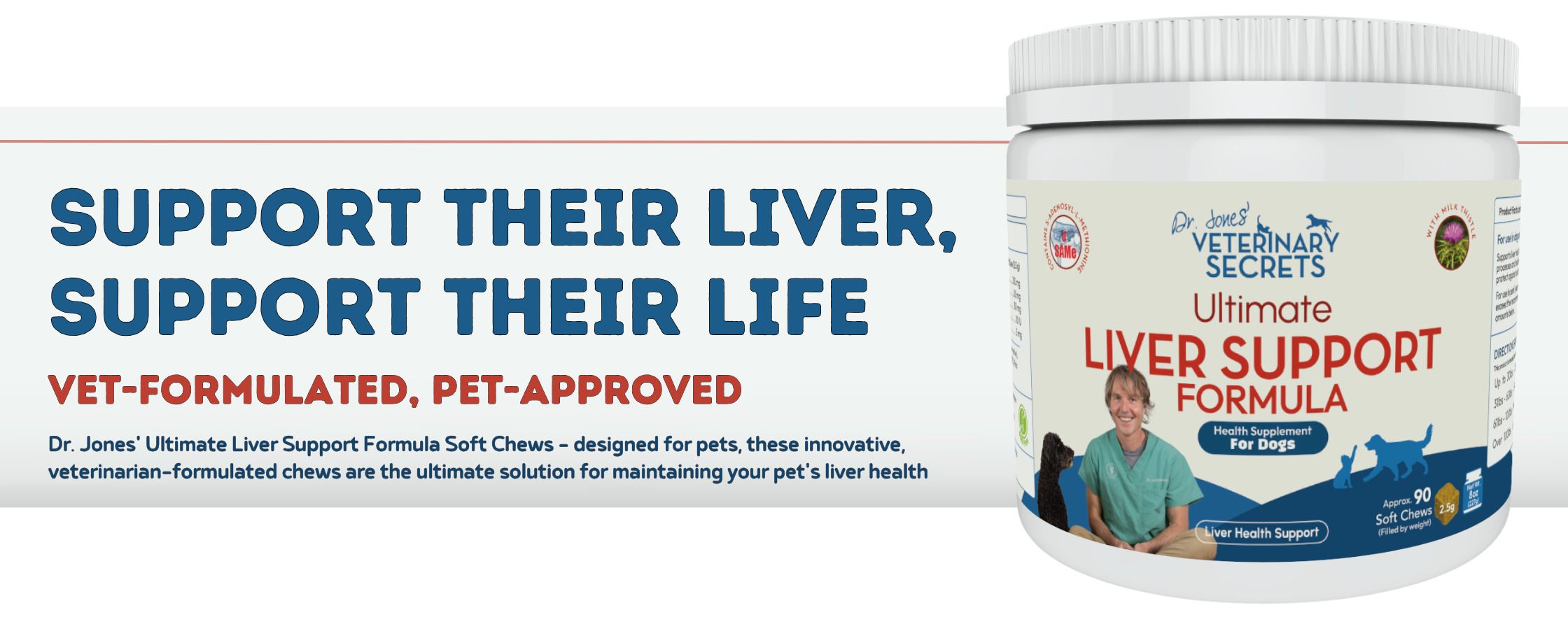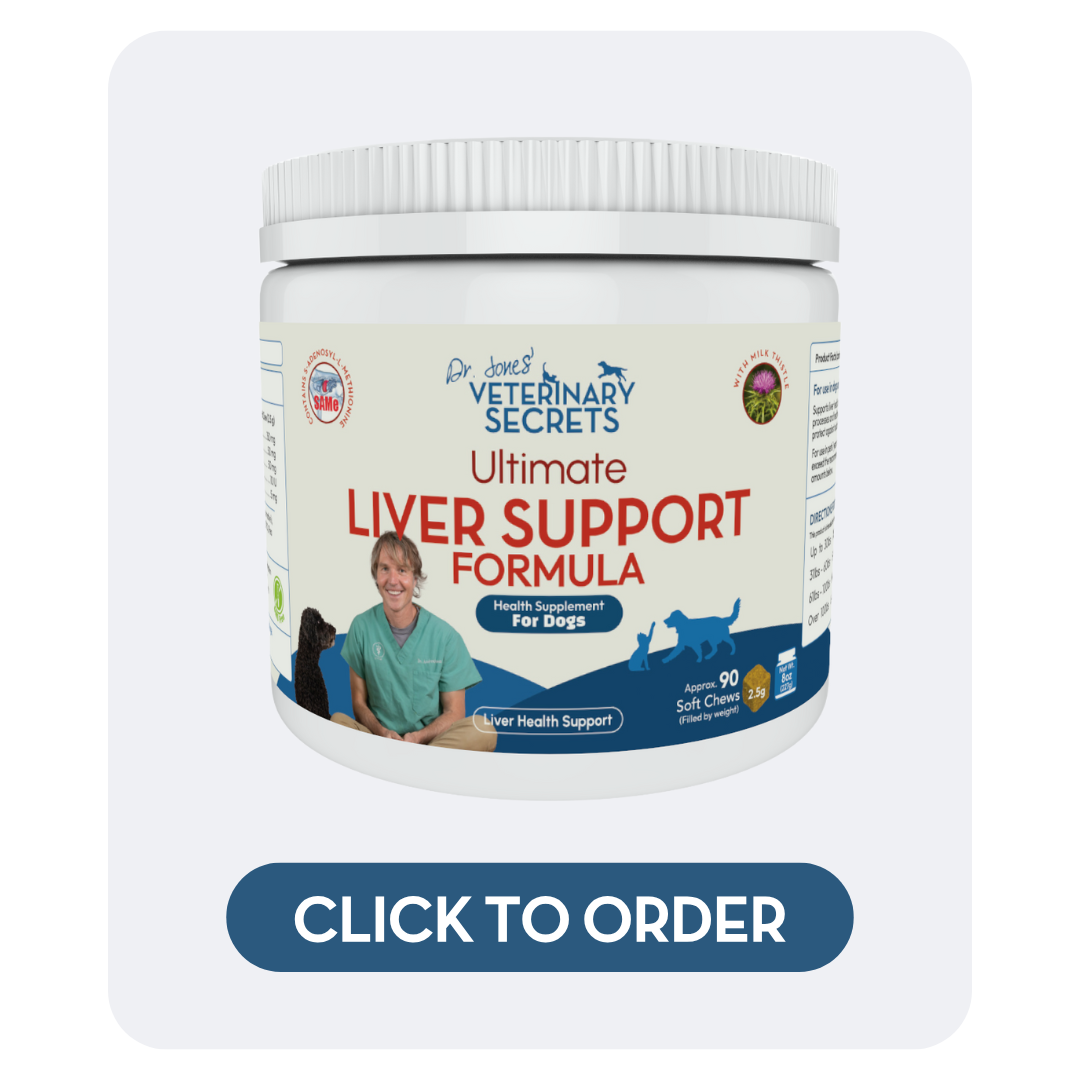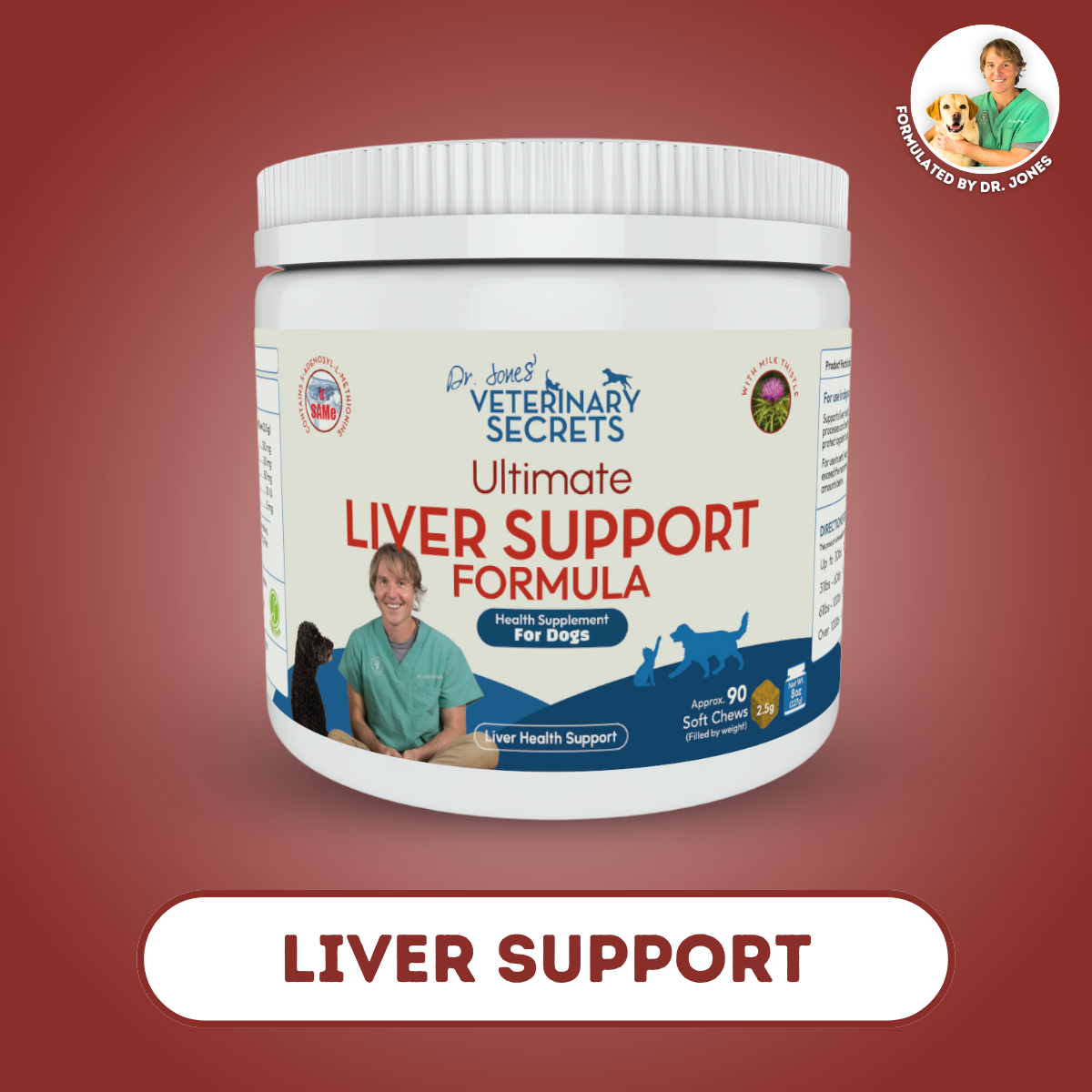How Aflatoxin in Kibble Can Damage Your Pet’s Liver — and How to Avoid It
![]()

The Hidden Toxin Linked to 100,000 Liver Cancer Cases a Year
Recently, I came across some concerning research about a common fungus that can contaminate both human and pet food—Aflatoxin.
This toxin can be incredibly harmful, especially to the liver, which is the organ responsible for removing toxins from the body. When aflatoxin enters the system, the liver takes the hit.
If your dog or cat has been diagnosed with elevated liver enzymes or liver disease, this is something you’ll want to pay attention to.
That’s one of the reasons I developed my Dr. Jones’ ULTIMATE Liver Support Formula—soft chews that contain powerful liver-healing nutrients like SAMe, Milk Thistle, and Dandelion Root. These ingredients help protect and repair the liver while also supporting your pet’s overall well-being.
Love Your Dog’s Liver — The Natural Way to Help Them Live Longer
Formulated with Milk Thistle, SAMe, and Dandelion Root, these chews help protect and repair liver cells while supporting your dog’s energy, digestion, and immunity. Whether your dog has elevated liver enzymes, takes daily medication, or just needs a natural health boost, these tasty chews are a simple, powerful way to keep their liver functioning at its best. Help your dog live longer, stronger, and healthier—because a happy liver means a happy dog.


What Researchers Are Saying About Aflatoxin
According to a report from Food Safety Magazine, at the 2022 Institute for the Advancement of Food and Nutrition Sciences’ Annual Meeting, Dr. Felicia Wu presented her research on the growing prevalence of aflatoxin contamination in U.S. corn.
She stated:
“Aflatoxin poses a public health risk due to its association with liver cancer, and is the most potent, naturally occurring human carcinogen. Approximately 100,000 cases of liver cancer are caused by aflatoxin per year.”
Those numbers are human cases—but it raises a serious question:
If aflatoxin causes 100,000 cases of liver cancer in people every year, how many pets are being affected?
Why This Is Hard to Trace
Here’s the problem:
Pet food–related illnesses aren’t tracked like human food illnesses.
Most veterinary clinics don’t record which brand of food a cancer-diagnosed pet has been eating, and there’s no centralized database connecting pet diseases to pet food ingredients.
To make matters worse, many veterinary clinics are now owned by pet food corporations—including Mars Petcare, the largest pet food manufacturer in the world. That’s a clear conflict of interest, and it makes it unlikely that cases of aflatoxin poisoning linked to their foods will ever be fully reported or studied.
How Aflatoxin Gets Into Pet Food
The FDA explains that aflatoxins are produced by molds from the Aspergillus species. These molds can grow on grains and seeds during the growing season and after harvest, especially when stored in warm, humid conditions.
The biggest concern? Corn.
Corn is the most commonly used grain in commercial pet foods. In fact, a 2020 report from the Institute for Feed Education & Research showed that more corn is used in dog and cat food than any other ingredient—more than twice as much as any alternative.
That’s a huge problem because corn is the primary carrier of aflatoxin contamination.
My Experience with Aflatoxin Poisoning
Over the years, I’ve seen dogs poisoned by aflatoxins from moldy food or compost. They would come into the clinic weak, wobbly, and suffering from uncontrolled tremors.
I’ve always known aflatoxin was toxic—but seeing research linking it to cancer makes perfect sense.
This is yet another reason I strongly recommend avoiding commercial corn-based pet foods. Feed fewer processed kibbles and more fresh, whole foods whenever you can.
Support and Protect Your Pet’s Liver
If your dog or cat is dealing with liver issues, it’s essential to help the liver heal and regenerate. Nutrients like Milk Thistle, SAMe, and Dandelion Root have been shown to support liver recovery and function.
That’s why I included these three key ingredients in my Ultimate Liver Support Formula.
My own 15-year-old dog, Tula, takes these chews daily—not just for her liver, but also for joint, cognitive, and immune support. And she’s still running ahead of me on walks!
Dr. Jones’ ULTIMATE Liver Support Formula
- Milk Thistle, SAMe, and Dandelion Root
- Designed for dogs and cats needing liver support
- Helps detoxify, repair, and protect the liver
Get Dr. Jones’ Ultimate Liver Support Formula Here
The Takeaway
Aflatoxins are one of the most common causes of pet food recalls, yet most pet parents have never heard of them.

It’s time we start paying closer attention to what goes into our pets’ food—especially when it comes to grains like corn.
Your pet’s liver works hard every day. Give it the support it needs to keep your dog or cat healthy, happy, and thriving.
Click To Get A Free Copy of My E-Book!

P.S.
Avoid any food with corn. Feed less kibble and focus more on fresh, whole-food ingredients. There’s really no place for corn in pet food—especially when it’s a common source of aflatoxin.
P.P.S.
If your dog or cat has elevated liver enzymes, consider a high-quality liver supplement. The combination of Milk Thistle, SAMe, and Dandelion Root can help damaged liver cells regenerate naturally.
Stay Connected with Dr. Andrew Jones DVM:
- Visit our website: https://veterinarysecrets.com/
- Subscribe for more pet care tips: https://www.youtube.com/@VeterinarySecrets
- Facebook: http://facebook.com/veterinarysecrets
- Instagram: http://instagram.com/veterinarysecrets
- Twitter: http://twitter.com/dogandcatdoc
- Pinterest: http://pinterest.com/veterinarysecrets
- Podcast: http://vetsecrets.podbean.com/
Love Your Dog’s Liver — The Natural Way to Help Them Live Longer
Formulated with Milk Thistle, SAMe, and Dandelion Root, these chews help protect and repair liver cells while supporting your dog’s energy, digestion, and immunity. Whether your dog has elevated liver enzymes, takes daily medication, or just needs a natural health boost, these tasty chews are a simple, powerful way to keep their liver functioning at its best. Help your dog live longer, stronger, and healthier—because a happy liver means a happy dog.











Thank you for sharing this Dr Jones. My daughter’s dog has liver issues and is using these in supplements for her dog. I’m going to highly suggest she get yours for treatment of the doggos liver issues.